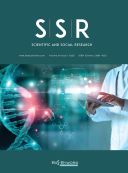Abstract
Framed with Bourdieu’s capital theory, this article examines how different kinds of capital affect school choice after the implementation of the “Double Reduction” policy in China. The considerable disparities in capital causes difference in choice of schools, which is one of the causes of educational inequality. The article tentatively concludes that the “Double Reduction” policy promotes educational equity by restricting the use of capital by the privileged class. However, in the long run, the policy cannot alleviate the educational inequity, because it simplifies the complex struggle and compromise among different types of capital.
References
Waits T, 2012, Pierre Bourdieu’s Theory of Capital and Parental School Choice Decisions: A National Study, dissertation, American University.
Harvey D, 2005, A Brief History of Neoliberalism, Oxford University Press, Oxford.
Liu S, Apple MW, 2016, Parental Choice of School, Class Strategies, and Educational Inequality: An Essay Review of School Choice in China—A Different Tale? (X. Wu, New York, NY: Routledge, 2014, 168 pp. ISBN 978-0-415-81769-1). Educational Policy, 30(6): 940–955.
Apple MW, 2006, Educating The “Right” Way: Market, Standards, God, and Inequality (2nd ed.), Routledge, New York.
Apple MW, (ed) 2010, Global Crises, Social Justice, and Education, Routledge, New York.
Whitty G, 1997, Creating Quasi-Markets in Education: A Review of Recent Research on Parental Choice and School Autonomy in Three Countries. Review of Research in Education, 22: 3–47.
Bourdieu P, 1984, Distinction: A Social Critique of the Judgement of Taste, Harvard University Press, Cambridge.
Bourdieu P, 1985, The Social Space and the Genesis of Groups. Theory and Society, 14: 723–744.
Khalil L, Kelly A, 2020, The Practice of Choice-Making: Applying Bourdieu to the Field of International Schooling. Journal of Research in International Education, 19(2): 137–154.
Ball SJ, 2003, Class Strategies and the Education Market: The Middle Class and Social Advantage. New York, Routledge.
Bathmaker AM, 2015, Thinking with Bourdieu: Thinking After Bourdieu. Using ‘field’ to Consider In/Equalities in the Changing Field of English Higher Education. Cambridge Journal of Education, 45(1): 61–80.
Liu XD, Li M, 2010, A Study of School Choice Among Rural Primary and Secondary School Students. Modern Primary and Secondary Education, 2010(1): 3.
Farre L, Ortega F, Tanaka R, 2018, Immigration and the Public–Private School Choice. Labour Economics, 51: 184–201.
Wiborg ØN, Grätz M, 2022, Parents’ Income and Wealth Matter More for Children with Low than High Academic Performance: Evidence from Comparisons Between and Within Families in Egalitarian Norway. Research in Social Stratification and Mobility, 79: 100692. https://doi.org/10.1016/j.rssm.2022.100692
Williams K, Jamieson F, Hollingworth S, 2008, “He was a Bit of a delicate thing”: White Middle-Class Boys, Gender, School Choice and Parental Anxiety. Gender and Education, 20(4): 399–408.
Yoon E-S, Grima V, DeWiele CEB et al., 2022, The Impact of School Choice on School (Re)Segregation: Settler-Colonialism, Critical Geography and Bourdieu. Comparative Education, 58(1): 52–71.
